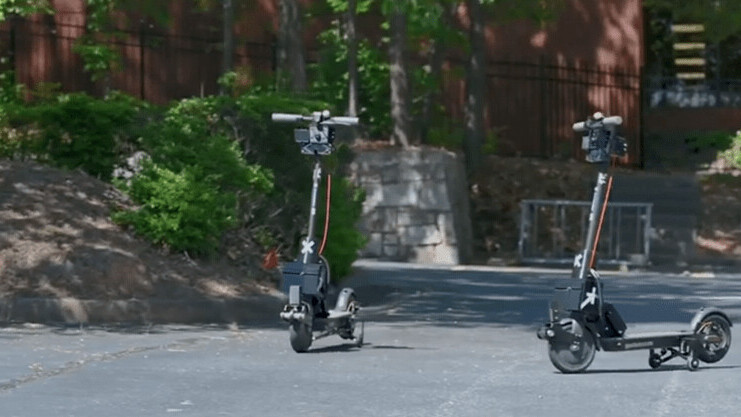
This article was originally published by Sarah Wray on Cities Today, the leading news platform on urban mobility and innovation, reaching an international audience of city leaders. For the latest updates follow Cities Today on Twitter, Facebook, LinkedIn, Instagram, and YouTube, or sign up for Cities Today News.
A fleet of 100 remote-controlled scooters is being piloted at the city-owned Curiosity Lab technology testing ground in Peachtree Corners, Georgia. It is understood to be the first trial of its type on public roads.
Citizens will be able to hail a scooter via an app and the vehicle will be automatically returned to a base when the ride is over. Go X created the scooter and ride-hailing app, while Tortoise developed the remote repositioning system.
During the initial pilot, which will run for six months, the scooters will use geo-fencing to ensure they stay within the designated 500-acre Curiosity Lab technology park, where 7,500 people work and more than 1,000 people live. The City of Peachtree Corners passed an ordinance mandating that all shared micromobility devices deployed are capable of automated repositioning to increase the accessibility of shared e-scooters while avoiding the sidewalk clutter and public safety challenges that many other cities have experienced.
[Read: How Lisbon is reshaping its mobility landscape with e-scooters]
The 100 scooters will be operated remotely by humans but the trial could pave the way for autonomy.
Betsy Plattenburg, Executive Director, Curiosity Lab, told Cities Today: “What we have learned at Curiosity Lab is that there are a lot of micromobility solutions that hope to be autonomous, but what they need right now is experience and data for the artificial intelligence. One of the ways they’re going to get that in the short term is to use tele-operation as an interim step.”
The trial was originally scheduled for January but was moved back because of the coronavirus outbreak.
Go X has now implemented COVID-19 safety measures. Each vehicle is manually disinfected upon being remotely repositioned to a home base and gets a sticker to prove this has taken place. Every Go X Apollo employee is also required to pass a daily COVID-19 health check.
Curiosity Lab, which is funded by the City of Peachtree Corners, offers free 5G access, infrastructure and intellectual property protection to provide a real-world test environment for mobility and smart city technology.
Plattenburg said: “What I can tell you from the other companies that have tested at Curiosity Lab is that a lot of the things they learn are not the things that they set out to learn. You learn by experience and it’s that unknown which is really why they’re here.”
Get the TNW newsletter
Get the most important tech news in your inbox each week.




